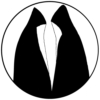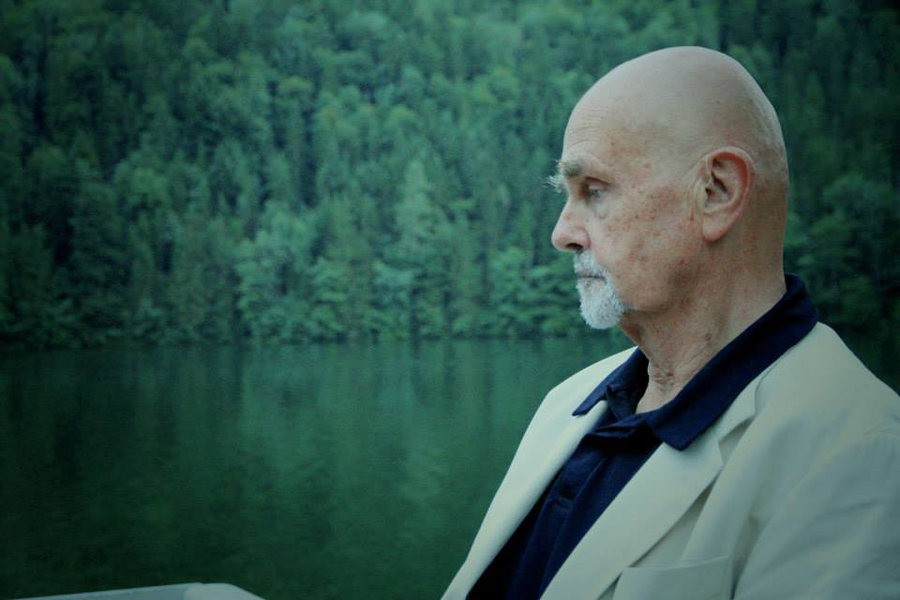ROEDELIUS
Booking: info(@)folkwisdom.net
“An inspiration to artists as diverse as Red Hot Chili Peppers, Brian Eno and Julian Cope. Roedelius has pursued his unique and extraordinarily beautiful vision for half a century. He has also lived a life that screams out to be told in a movie” – Mojo
“If you’re a fan of contemporary electronica, but if Roedelius is an unfamiliar name to you, then you’re missing out on one of that genre’s most important well-springs” – BBC
“While most of his Krautrock peers hung up their creative hats years ago, he has continued to develop and experiment with the abandon of a teenager” – The Wire
For more than 50 years now, Hans-Joachim Roedelius has been improvising his self portrait and he still hasn’t finished it. True to his calling – a sound painter – he’s been poised to sonic canvas rendering his psyche in glorious lo-fi. Roedelius overall impact on many musical genre is immense and he has often been credited as one of the ubermeiesters of what became known, affectionately, as Krautrock. He has released over 100 records, encompassing experimental and leftfield departures to more traditional soundtracks and classical compositions and has a loyal fan base of young and old.
An idyllic childhood as an actor in the late 1930s German movies was abruptly ended by the firestorms of wartime Berlin. As a teenager, Roedelius was forcibly conscripted by the DDR Volksarmee only to desert and face two years imprisonment with hard labour 1000 meters underground in the coal mines. From there, Roedelius went on to become one of the most important and enduring artists to have emerged from the 1960s West German counterculture.
Like Woody Allen´s Zelig, he is a curiously omnipresent figure at several key historic points in time – he was a key player at the birth of Kosmische, Krautrock, Synth Pop and Ambient. Co-founder of Berlin’s first free art studio, the Zodiak Arts Lab (1967), he was also a founder member of various groups, namely Human Being, Kluster, Cluster, Harmonia, Tempus Transit and Lunzprojekt.
His duets with Dieter Moebius as Cluster – once hailed “20th Century music’s best kept secret” – at least equaled the more well-known innovations of their German cohorts Tangerine Dream, Kraftwerk, Can. His solo albums were just as radical in seeking an unlikely reconciliation with the past. Cross-wiring Krautrock´s brutalist modernism with an earlier strain of teutonic enquiry, melding weird electronica with folk, jazz and classical voices to often stunning effect.
He played on around 160 record productions either as a soloist or with band projects. Some 1600 musical works bear his name, plus a similar number of texts (poetry, prose etc.). Music for dance theatre productions, oratorios, radio plays, symphonies. Cultural award winner in his home town of Baden, near Vienna, stipendiary of Vienna’s Alban Berg Foundation. Honorary President of the Moving Culture Festival in Tirana (Albania), Honorary member of the Happy Valley Foundation in Ojai (California/USA), artistic director of the More Ohr Less symposium and festival at Lunz am See, Austria. Collaborations with artists all over the world, including Brian Eno, Holger Czukay (Can), Conrad Plank, Susumu Hirasawa, Tim Story, Dieter Moebius, Michael Rother, Stefan Schneider, Christopher Chaplin, and Christoph Müller (Gotan Project).
“90 is in no way intended as the exhaustive retrospective of the oeuvre of an important artist (this can, and should, be done in the coming years by someone more qualified than me.) The actual chronology of these pieces, and in some cases who might have collaborated with Achim on them, remain a mystery. But the historical context of this music is undeniably compelling—it doesn’t feel like hyperbole to suggest that these cascading, hypnotic cycles equal the best of contemporaries like Terry Riley, working half a world away on their own minimal masterpieces. For now, a celebration is sufficient—the portrait of an extraordinary life at 90, narrated in beautiful, intimate, innovative music.“
(from the box notes by Tim Story, March 2024)

